This is how the G20 Culture concluded: with a 32-point document unanimously approved, the “Rome Charter” as Minister Dario Franceschini proudly called it. A document that, as official communications report, “calls for the full recognition and integration of culture and the creative economy into development processes and policies; urges governments to recognize culture and creativity as an integral part of broader political agendas broader agendas and to ensure that cultural and creative professionals and enterprises have due access to employment, social protection, innovation, digitization, and entrepreneurship support measures; condemns the deliberate destruction of cultural heritage; expresses deep concern about the growing looting and illicit trafficking of cultural property and threats to intellectual property; recognizes the illicit trafficking of cultural property and threats to intellectual property as serious international crimes related to money laundering, corruption, tax evasion, and terrorist financing; recognizes the role of culture and its potential in leading to solutions to address climate change recognizes the importance of digitization for preservation, access, reuse, and education; recognizes the importance of sustainable cultural tourism in affirming the value of culture as a resource for dialogue and mutual understanding among individuals and for the preservation of cultural heritage.”
Very rich, vast, complex themes. At the end of the brief concluding press conference, Minister Franceschini, the sole rapporteur, is asked if there were any points where there is still distance between the parties, if therefore in some points of the document a compromise had to be found. The answer is clear: “no, total agreement on everything.” So countries characterized by systemic suppression of human rights, such as Saudi Arabia, were in tune with European democracies on points such as “the value of culture as a resource for dialogue and mutual understanding between individuals” or “gender equality and women’s empowerment.” Which, arguably, allows for the key to understanding this summit, and this document.
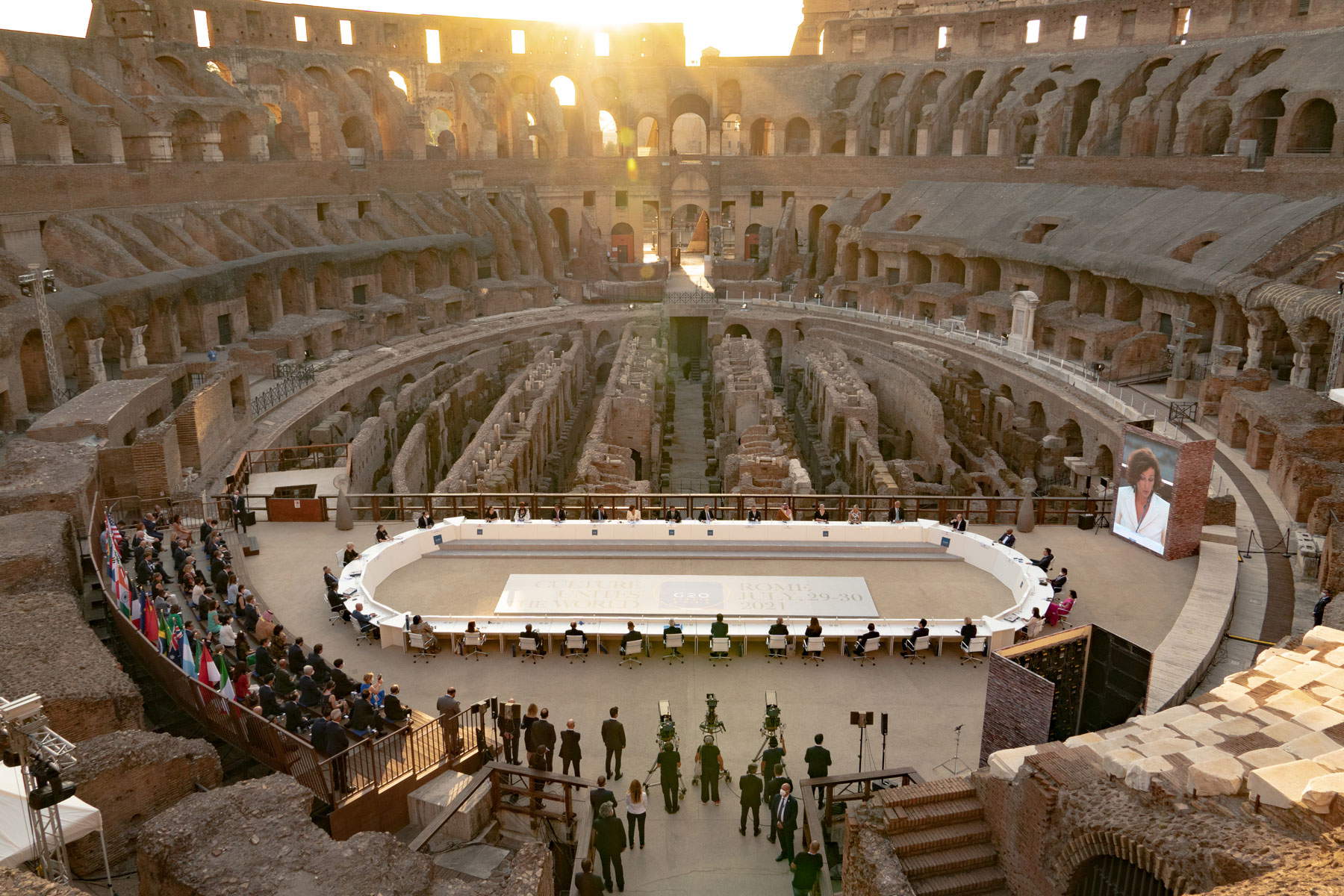 |
| Images from the G20 Culture. Photo: Ministry of Culture |
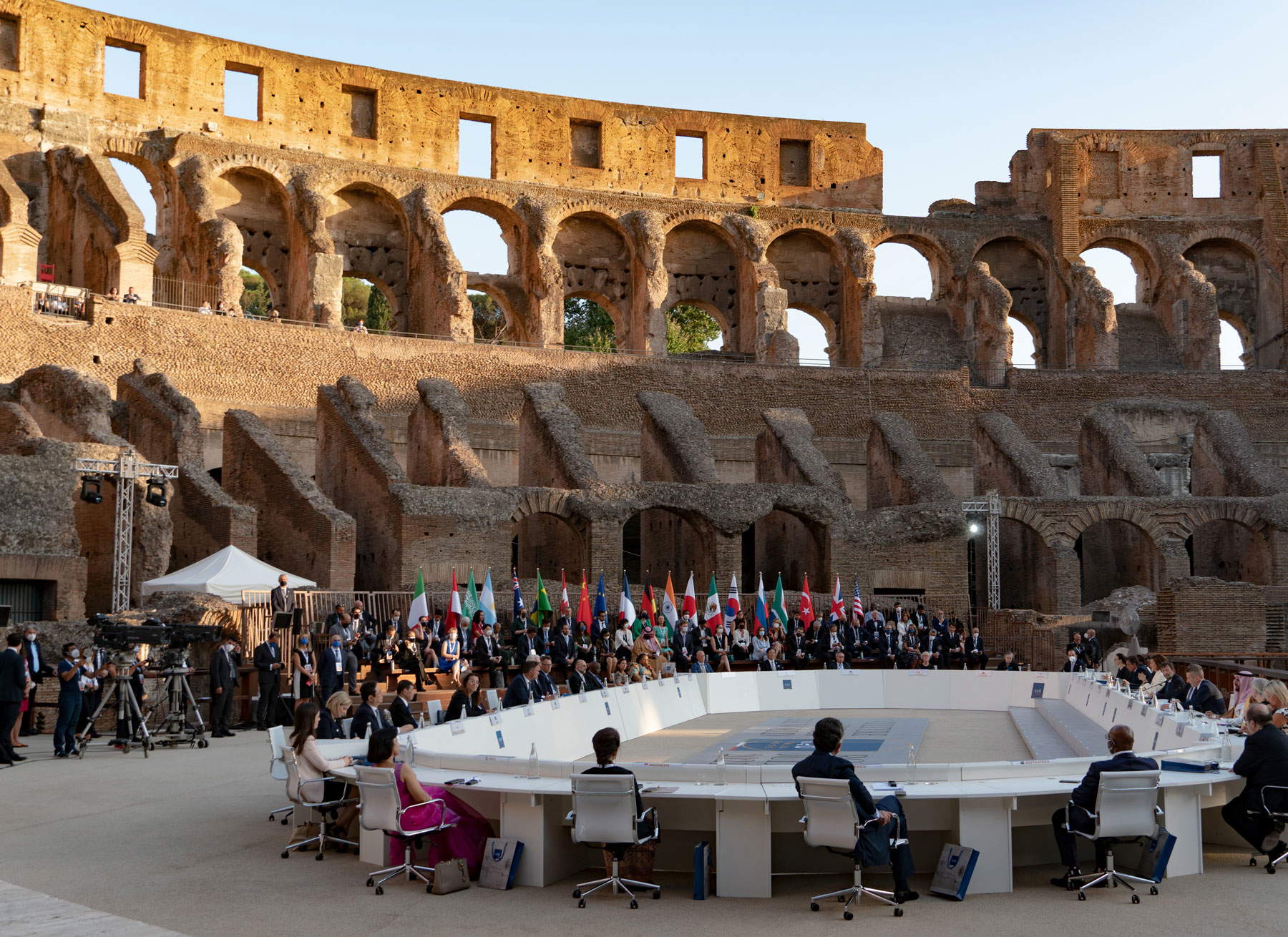 |
| Images from the G20 Culture. Photo: Ministry of Culture. |
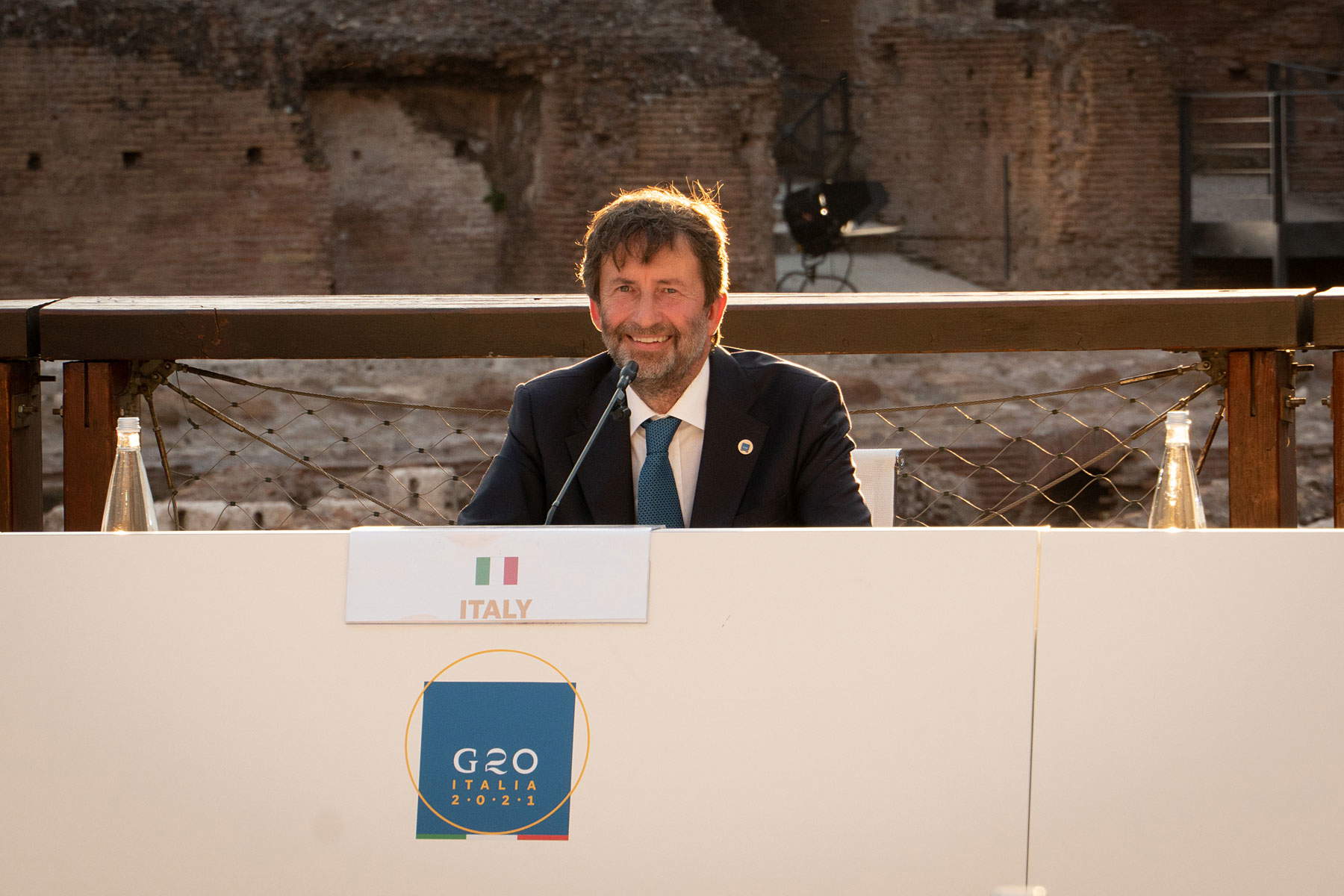 |
| Images from the G20 Culture. Photo: Ministry of Culture. |
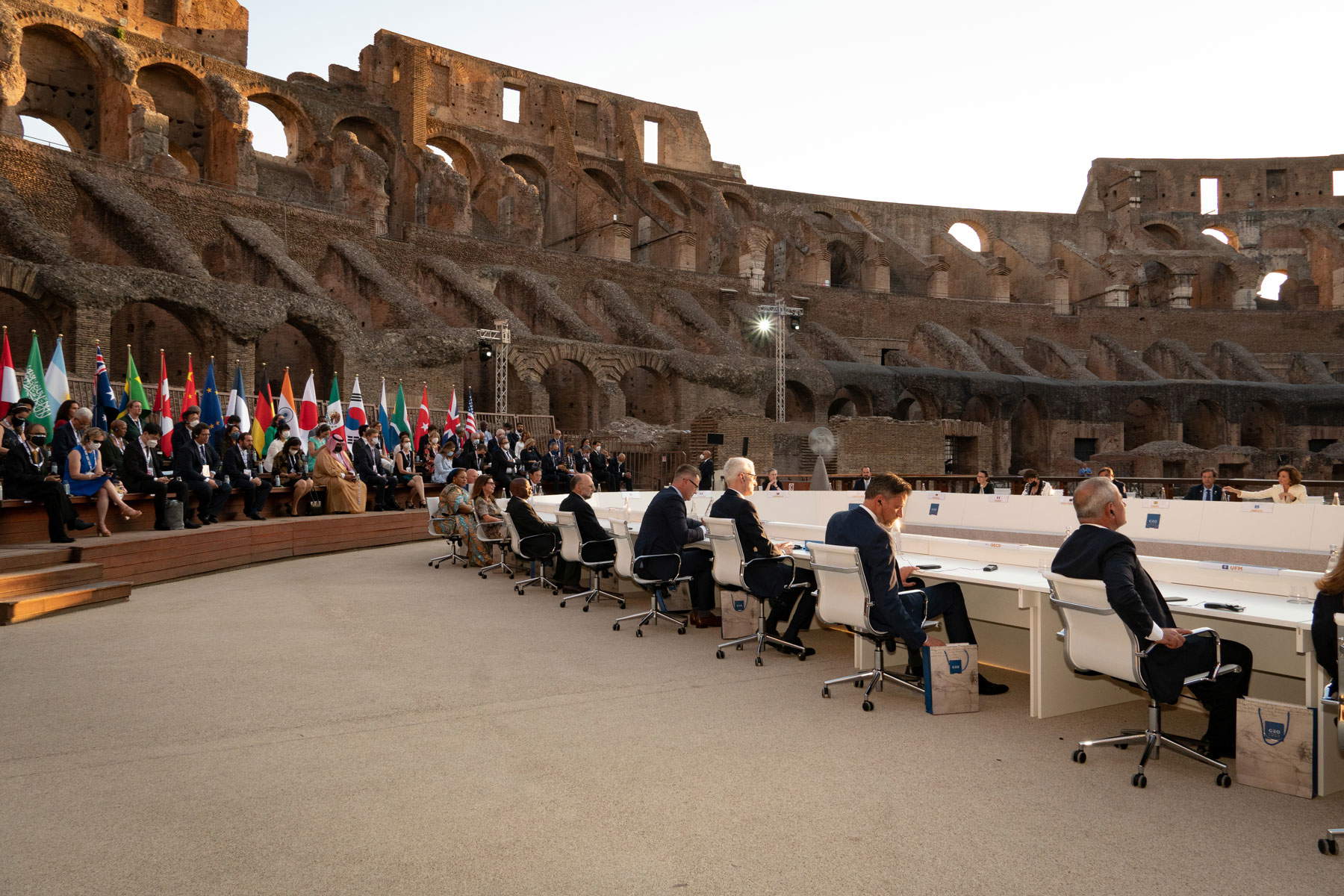 |
| Images from the G20 Culture. Photo: Ministry of Culture. |
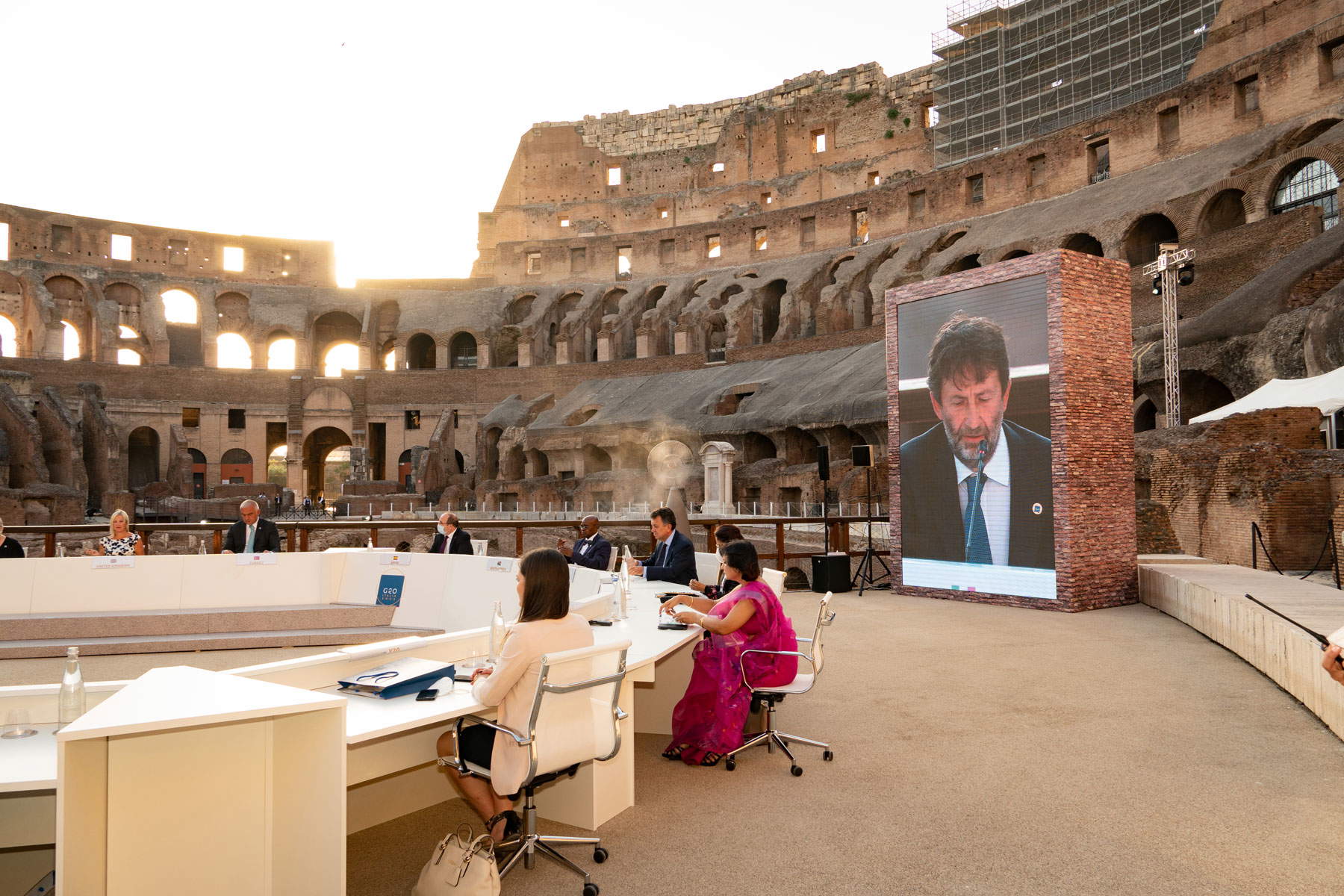 |
| Images from the G20 Culture. Photo: Ministry of Culture. |
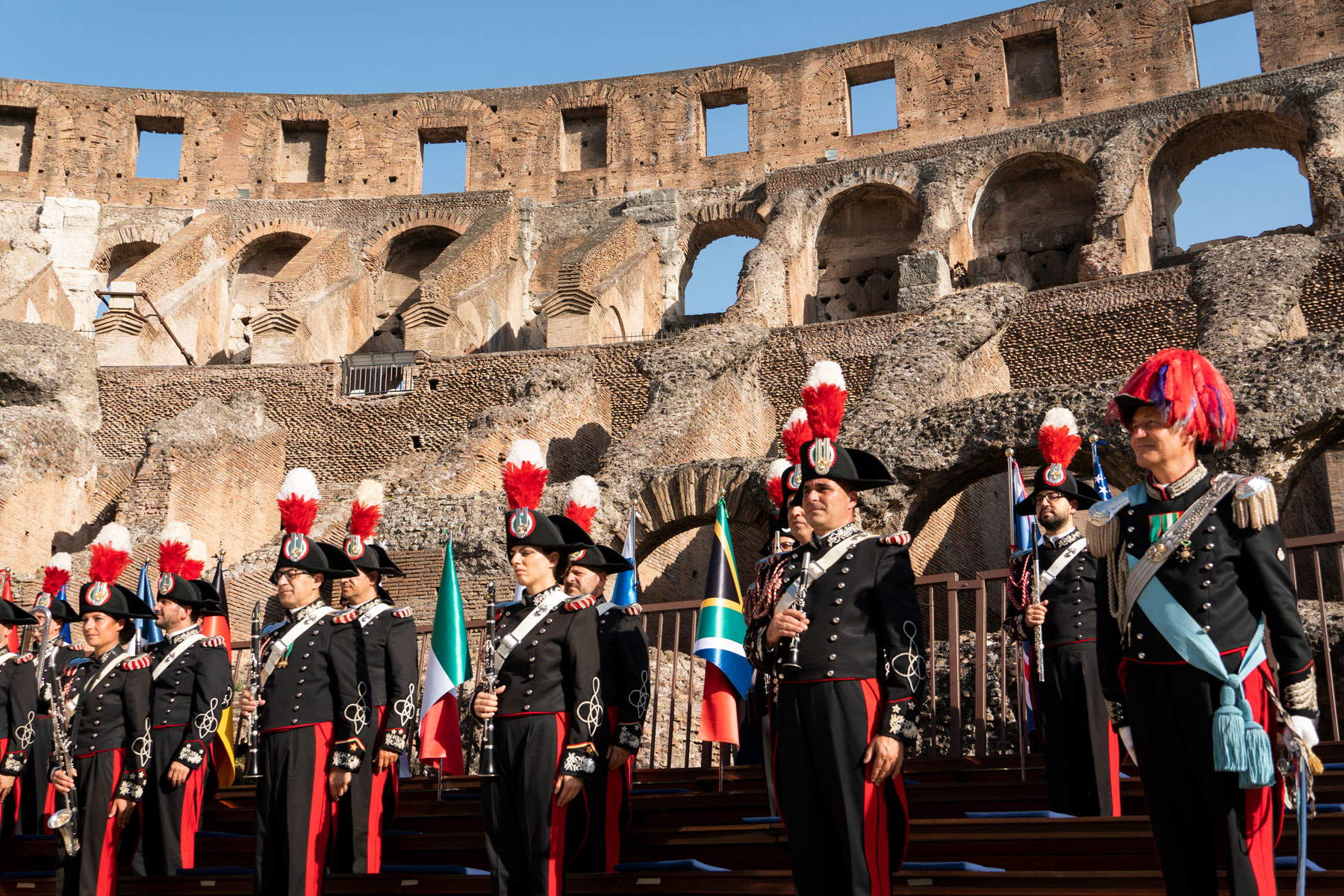 |
| Images from the G20 Culture. Photo: Ministry of Culture. |
Let’s start with a basic assumption: this meeting permanently includes culture in G20 meetings, and this is an important achievement, which will allow the twenty largest global economies to talk about culture periodically. But the feeling is that this is where the good news ends, and for a meeting that cost a great deal of money, both in terms of ceremonies and in terms of closing state museums to the public, it really seems a shame. The minister’s words closing the event allow one to understand the profound whys of the summit. The minister, while recounting the extraordinary beauty of the places where the summit was held (Colosseum, Palazzo Barberini, Villa Borghese), explains that thanks to this meeting it is confirmed that “Italy enjoys internationally recognized leadership” in the cultural sector. He then speaks of a “curious coincidence” that matched the meeting to the moment when Italy once again became the country with the most UNESCO heritage sites in the world: actually coincidence is not coincidence at all, since UNESCO has never rejected a property proposed by Italy (given the substantial funding our country provides to the organization) and since the dates of the meetings of the committee that was supposed to approve the new UNESCO heritages had been known for some time. So it was first and foremost this: to demonstrate, to claim leadership.
Leadership in some specific areas, such as that of heritage protection through the use of law enforcement with specific expertise (the Carabinieri’s heritage protection unit, which in fact intervenes during the work). As for the areas where this leadership is not there, these are simply not taken into account in the works: this is the case of prevention done through widespread protection and functioning peripheral offices (no Superintendency officials were invited to speak), or good employment as a tool for effective protection and enhancement (unions and workers in general were also kept removed from the event). On other issues, in order to claim supposed leadership, remarkable somersaults are made: to speak about the role of education we have Vincenzo Trione, a full professor and journalist for Corriere della Sera, who for the past two years has been president of the highly contested School of Heritage, an expensive foundation that bestows a post-post-graduate degree unique in Europe and of dubious usefulness and function. All this, however, the foreign presenters do not know, no other educational institution intervenes, and so in the final document we find the Heritage School as the hypothetical leader of an international network of educational institutions of excellence. The international presenters do not even know how exploited and underpaid some of the workers who welcome them are, and they talk about human rights and inclusion without knowing that in the hours of the summit the case emerges with all its contradictions through a complaint to Fatto Quotidiano. The bubble begins to crack.
Theattunement among those present is total, but one wonders who are the guests who have been asked to speak. In addition to the 20 ministers, we have Prime Minister Mario Draghi (who a few minutes later will indulge in a comment about “experts” that is making a lot of noise), UNESCO Director General Audrey Azoulay, the (scientific) director of the Egyptian Museum in Turin Christian Greco; and then, in addition to the Carabinieri general, several UN drug, crime, and customs executives; the secretary general ofINTERPOL; the presidents of major international organizations such as ICOM (an organization that is experiencing a rich and tense internal discussion, not even mentioned at the event), ICOMOS and ICCROM; and then, to talk about digital transition, a representative from the OECD, one from an internal G20 youth association (Y20), several directors of European commissions on participation and innovation. In short, technical people were missing, and the only representatives of Italian institutions who spoke were General Riccardi, a military man, Director Greco, an employee of a private foundation, and the minister’s chief of staff, Lorenzo Casini. In four hours or so of discussion (on the evening of the 29th there were only speeches and a concert) it probably could not have been done otherwise, but finding harmony by excluding a considerable, majority part of the world and the sector on which one is going to deliberate, however, has limited meaning and relevance, unfortunately.
Outside the Colosseum, on the morning of July 29, a garrison of workers and activists demanded to be heard, demanded that the issues made urgent by the pandemic be addressed: working conditions and the role of heritage in society, in a society without mass tourism. None of this was addressed: the document spoke, still in an economicist and perpetual growth key, of “more sustainable production and consumption practices.” Cultural production, not service. The workers thought to have been left at the door were, however, inside the Palace, telling the newspapers what conditions they were working under: less than 5 euros an hour. An outlier, captured by the web, reveals that Dario Franceschini is counting on finishing the completion of the Colosseum arena "intime for the ’23 elections," in a consensus-driven cultural management that has always been whispered and speculated about by the minister’s critics but never made so explicit. When you keep the world at the door, the world somehow gets in: even in the Rome Charter, which is already born old because of these choices. But which can, most likely, soon be superseded in summits that choose to address the most complex issues.
In the meantime, we have a document in which, in a profusion of good intentions, twenty very different countries commit themselves to some cultural issues. A side step, but at least it is a step.
Warning: the translation into English of the original Italian article was created using automatic tools. We undertake to review all articles, but we do not guarantee the total absence of inaccuracies in the translation due to the program. You can find the original by clicking on the ITA button. If you find any mistake,please contact us.